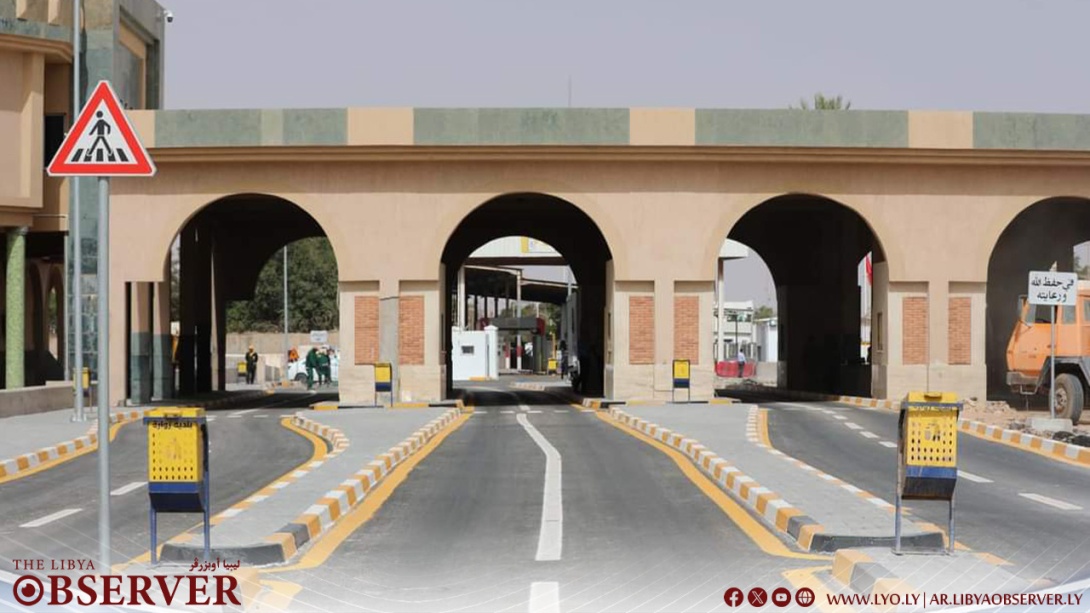Ras Ajdair border between Libya and Tunisia was reopened on Monday after more than 100 days of closure. The reopening came on the heels of an agreement between the two countries on different issues of mutual concern. The announcement of the reopening came in a joint press conference held by the Interior Minister-designate, Emad Al-Trabelsi, and his Tunisian counterpart, Khaled Nouri.
Ras Ajdair border was closed to travelers and traffic on March 19, and its official reopening was postponed three times, while it had been partially opened for emergency humanitarian and diplomatic cases in mid-June.
Al-Trabelsi confirmed in the joint presser that the previous closure was aimed at organizing the border to end insecurity and instability, adding that the plan to reopen the crossing included facilitating the movement of travelers between the two countries, while providing new inspection devices.
Al-Trabelsi said that an official police force would be responsible for securing the border from the Libyan side, explaining that all workers at the border side in Libya had been replaced. He reaffirmed that the problem of the similarity of names, which was hindering traffic between the two countries, was resolved in coordination with Tunisian President Kais Saied.
In the meantime, Tunisian Interior Minister Khaled Nouri confirmed that the Ras Ajdair border was reopened to all citizens and commercial exchanges between the two countries.
Libya and Tunisia agreed during the press conference on working on reopening the rest of joint border crossings, while the Libyan Minister vowed to work on hindering the exploitation of the borders for smuggling weapons and drugs.
In another press conference, Deputy Chief of Staff of the Libyan Army – under the Government of National Unity’s command – Salah Al-Namroush revealed that the next stage would see the reopening and securing of the Ghadames Al-Dabdab crossing with the Algerian side. He said the border was witnessing smuggling operations from all regions.
Al-Trabelsi expressed in this second presser the readiness of the Interior Ministry to work with the “armed forces” – under the command of Khalifa Haftar – in the east to secure the southern border. He also vowed to end the smuggling of fuel and commercial materials between Tunisia and Libya.







